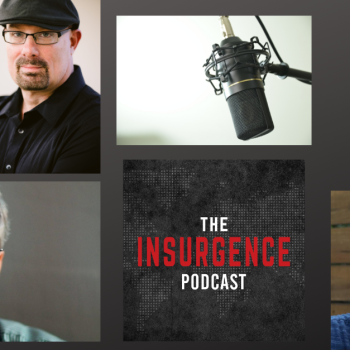In the unsavory exchange this past week between President Obama and the House of Representatives, one of the most important aspects got little notice from the pundit class and the public. Obama requested to address a joint session of Congress during the airing of the long-scheduled Republican candidates' debate on September 7. The Speaker of the House, Republican John Boehner of Ohio, declined the request, proposing September 8 as an alternate date. The proposal set up a new prime-time conflict with the first game of the regular NFL season, but that has reportedly been resolved: the president's address will start an hour before the Saints-Packers kickoff on Thursday.
All the obvious things about the situation have been lamented. No one has come out of this drama looking very impressive; even the people's preference for a football game over the president's "jobs speech" sends a melancholy message from more than one perspective. But it is also emblematic of the central vulnerability revealed by this episode: the erosion across society of the idea of authority.
Obama may have abused the privileges of presidential authority with his request, but neither Speaker Boehner nor the people seemed to think twice about dismissing those privileges in principle. There has been no general sense that the office, if not the man, should merit special consideration. The sense instead is that authority and its perquisites are not so much contemptible as simply unimportant. There has been no organized affirmation of the converse principle.
The perquisites of proper authority do not consist in making imperial gestures, of course. Authority ought to be able to command our attention, but the point here is not that it has the right to be high-handed or self-serving. Authority is necessary, however, and the need for it was built into the nature of man. The privilege of free men and women is not to live without it, but to decide how it is constituted in their communities, to assume it themselves in its various forms, and to cooperate with it voluntarily. Authority, properly constituted, is a contract of discipline, respect, and good faith on both sides.
Knowing how to be "a man under authority," like the centurion in Matthew 8:5-13, is as important to the operation of authority as knowing how to exercise it. Most of us fill both roles in life, and often simultaneously. Jesus himself, in whom "all power and authority" is vested, acknowledged being a man under the authority of his Father. He upheld and respected the authority of earthly government as well, even though it mistreated him. The humans on either side of the authority equation will always be flawed, but the principle of authority remains. Like justice, mercy, and love, it is modeled by God Himself, and integral to mankind as He has constituted us.
How do we as a people think of authority today? It may not seem fair to posit that others should deal respectfully with the president's office when he doesn't himself—but what are the consequences, when the prestige of the office seems to be accorded no special respect? Others besides Americans are watching. Our president is the one person who can represent American power abroad with purpose and effectiveness; his reputation matters. So does ours. The most important signal about American power is one the president doesn't send himself: that is, the quality of character exhibited by the people. Do we put the proper value on authority? Do we understand its relationship to order, justice, and security?
Many military leaders have had the experience of bolstering weak superiors in the interest of the soldiers, the mission, and the organization. The authority structure is there not just to get the job done but to protect people and ensure that their hopes are well-founded and their efforts matter. Some people will always mock and laugh when authority is handled poorly, but God is not a friend of mockers, even when the objects of their ridicule seem to merit the reaction. Wisdom begins with taking the principle of authority seriously when it may be more entertaining to default to mockery and cynicism. Societies and institutions can outlast bad leaders, but they don't weather the collapse of respect for authority.
Respecting authority doesn't mean silencing disagreement, being obligated to support harmful decisions, or pretending wrong is right. It doesmean overcoming the urge to exploit and poke fun at weak or poorly managed authority. If authority is not on a sound foundation, it must be restored to one, even if that means taking responsibility oneself to stand in the gap. "Lightening up" on this topic is not an option for a people who want liberty and civil harmony to survive.





